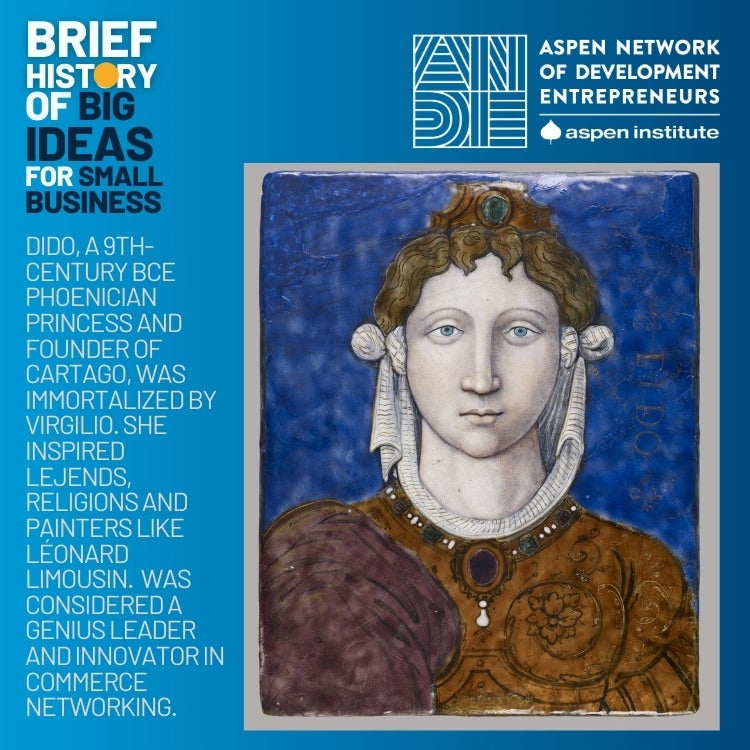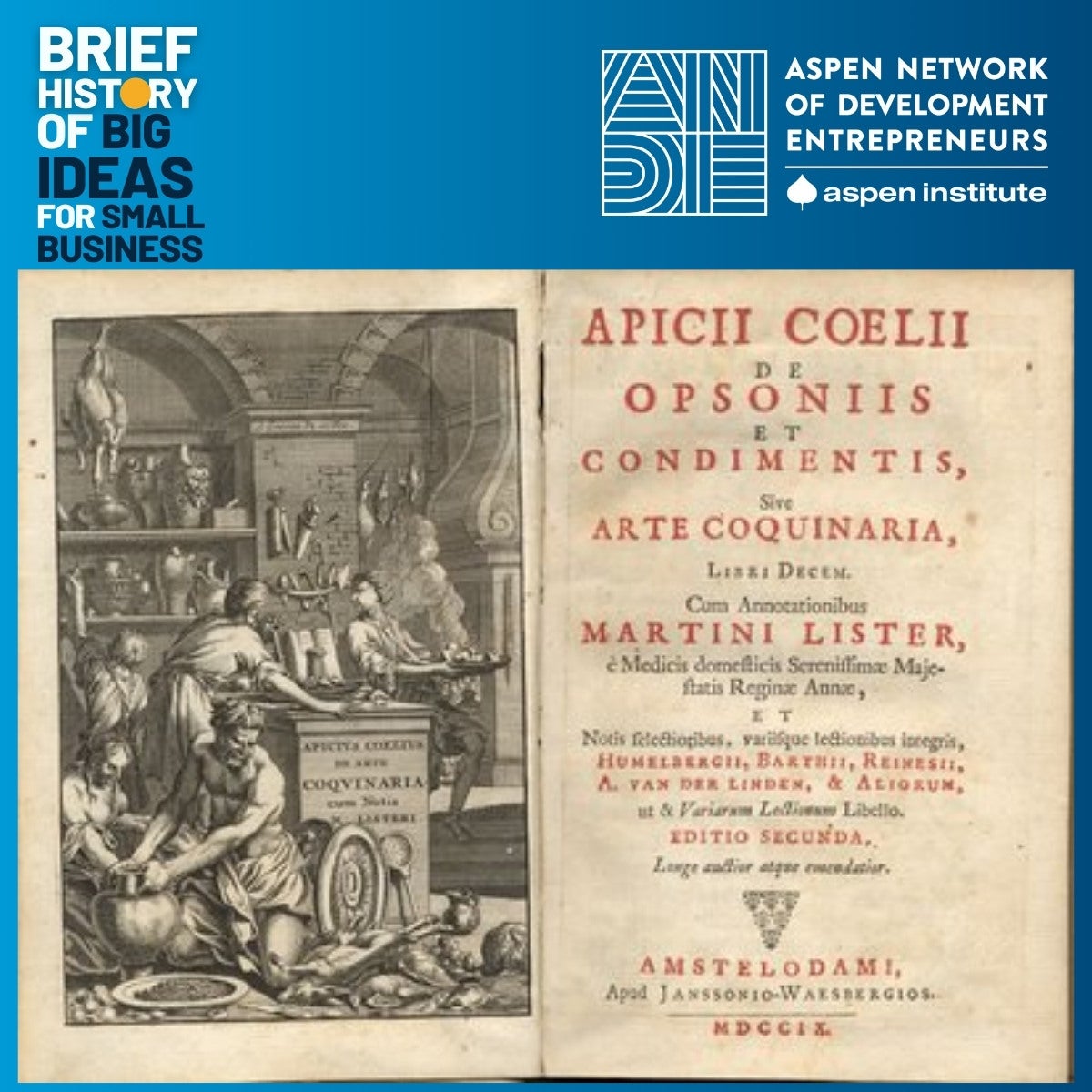
Lessons from History’s First Business Entrepreneurs
From ancient spice routes to Silicon Valley, explore the timeless wisdom and innovative spirit that have fueled small businesses across the ages.
 Dido, the 9th-century BCE Phoenician princess, stood on the docks of Tyre. Her keen eyes—said to have the foresight of a morning star—scanned the horizon for the return of her fleet with its cargo of treasures from distant lands.
Dido, the 9th-century BCE Phoenician princess, stood on the docks of Tyre. Her keen eyes—said to have the foresight of a morning star—scanned the horizon for the return of her fleet with its cargo of treasures from distant lands.
Dido’s ships brought back not just goods but ideas – new weaving techniques from Egypt and shipbuilding innovations from Crete. She understood that trade was not just about profit; it was about exchanging knowledge and nurturing relationships. We know this thanks to many historical sources. Virgilio immortalized Dido, who was famous for her sensual appetites, talent for leadership, and ruthlessness. Fleeing her ambitious brother, she founded the thriving city of Cartago, and many believe she inspired some stories about Astarte, the goddess of war and love.
Also, early records of commerce tell the story of Dido’s Phoenician savvy traders. In ancient Sumer, meticulous records on clay tablets detailing transactions weren’t just about tracking inventory; they were the first contracts, establishing legal protections for both buyer and seller, a foundation of trust upon which commerce could flourish.

A few centuries later and thousands of miles away, in the busy Trajan Market of Rome, Marcus Gavius Apicus, a renowned Roman gourmet, author of the oldest surviving cookbook from antiquity, “De Re Coquinaria,” and known for his extravagant tastes and love of exotic ingredients, meticulously arranged his wares. He learned to partner with spice merchants as his reputation rested not just on the quality of his saffron but on his ability to source rare ingredients like peppercorns from India and cinnamon from distant Ceylon, catering to the whims of Rome’s elite, who craved exotic flavors to elevate their lavish banquets.
His distinctive amphoras, bearing his family crest, were a mark of quality, a symbol recognized by discerning palates across the empire. His initial boutique enterprise grew large, fitting the modern definition of a small business and growing business. Marcus Gavius was a true pioneer of personal branding and first setting the rules of customer service.

Dido and Marcus Gavius embodied the entrepreneurial spirit that inhabited independent merchants, artisans, and skilled tradespeople throughout history.
These ancient entrepreneurs understood the power of reputation as branding, the importance of quality, and the value of forging customer trust. They knew that a business was more than just transactions; it was about creating experiences and forging connections.
The Phoenician and ancient Rome stories illustrate at least five big ideas that shaped not only small business but business history at large:

- The innovation of not just finding new ways but establishing and enforcing trade routes. These networks allowed ancient merchants to access new markets, source exotic goods, and expand their customer base.
- The idea of branding and reputation: Both Astarte and Marcus Gavius used distinctive symbols (Astarte’s echoing a goddess name and cultivating a reputation of indomitable force of nature, Marcus Gavius’s family crest on his amphorae) to establish their brands and generate trust with customers.
- Marcus Gavius’ focus on sourcing and selling rare spices to the Roman elite demonstrates an early trend to specialization and catering to niche markets. A strategy that allowed artisans and small merchants to differentiate their businesses and command premium prices for unique products.
- Dusty tablets of clay documenting transactions connect to the idea of contracts and legal protections for businesses that provided a framework for establishing trust and ensuring fair dealings between merchants and customers.
- Rome’s elite needed special attention, thus heralding the invention of customer service and business relationships. This personalized approach to business is still relevant today, as small businesses strive to build loyal customer bases and differentiate themselves from larger competitors.
From the ports of Tyre to the markets of Rome, the entrepreneurial spirit has always thrived on human ingenuity (and yes, also slavery). It is a spirit as old as civilization itself and as timeless as the human desire to create, connect, and succeed.
